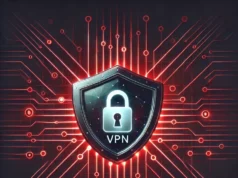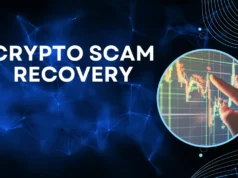As blockchain technology continues to evolve and gain widespread adoption, its potential in healthcare appears promising. Blockchain-based Electronic Health Records (EHRs) can revolutionize how patient data is stored, shared, and accessed, ensuring improved security, privacy, and interoperability. Additionally, blockchain can facilitate the secure exchange of medical research data, streamline supply chain management, enable secure prescription tracking, and enhance clinical trials through transparent data sharing.
Blockchain Technology
However, it is essential to acknowledge that implementing blockchain in healthcare requires careful consideration of regulatory compliance, scalability, and data governance. Collaboration among stakeholders, including healthcare providers, technology developers, policymakers, and patients, is crucial to harness the benefits of blockchain while addressing potential challenges effectively.
Streamlining Real Estate Transactions and Ownership Through Blockchain Technology
Blockchain simplifies real estate transactions by digitizing records and streamlining the transfer of property ownership. Smart contracts enable automated verification, reducing the complexity and time required for buying or selling properties. In recent years, blockchain technology has gained significant attention across various industries for its potential to revolutionize traditional processes.
Real estate, an industry known for its complex and time-consuming transactions, is no exception. By leveraging blockchain, real estate transactions can be simplified, records can be digitized, and the transfer of property ownership can be streamlined.
This article will explore how blockchain transforms the real estate sector, specifically focusing on its benefits to transaction processes and ownership verification.

Streamlining Transactions:
Digitized Records:
One of the key advantages of blockchain in real estate is the ability to digitize records. Traditionally, property transactions involve numerous paper documents that need to be manually processed and verified. With blockchain, property records can be stored in a decentralized and immutable manner, reducing the risk of fraud or tampering. This digitization simplifies retrieving and verifying property information, making transactions more efficient and transparent.
Smart Contracts:
Blockchain’s smart contract functionality is crucial in streamlining real estate transactions. Self-executing or smart contracts automatically enforce the terms and conditions laid out in them. Smart contracts allow buyers and sellers to automate various transaction stages, such as property inspections, escrow payments, and title transfers. This automation significantly reduces the complexity and time required for completing a real estate deal, eliminating the need for intermediaries and minimizing human error.
Enhanced Transparency:
Blockchain technology introduces a new level of transparency to real estate transactions. All parties involved in a transaction can access the distributed ledger, which contains a complete and immutable history of property ownership and transaction records.
This transparency helps prevent fraudulent activities and promotes trust between buyers, sellers, and stakeholders. Potential buyers can easily verify the authenticity of property titles and assess the transaction history, ensuring a more secure and reliable purchasing process.
Ownership Verification:
Immutable Records:
Blockchain’s immutability ensures that property ownership records cannot be altered or tampered with once added to the ledger. This feature enhances the reliability of ownership verification, as the entire transaction history is stored securely and transparently. By eliminating the need for manual record-keeping and authentication processes, blockchain technology reduces the risk of forged documents and provides a robust mechanism for establishing and validating property ownership.
Title Transfer Efficiency:
The transfer of property ownership can be a complex process involving multiple parties, paperwork, and intermediaries. Blockchain simplifies this process by enabling seamless digital transfers. Ownership transfers can be automated through smart contracts, ensuring accurate and efficient transitions between buyers and sellers. This eliminates the need for time-consuming manual paperwork, reduces administrative costs, and expedites the overall transaction timeline.
Cross-Border Transactions:
Blockchain technology has the potential to revolutionize cross-border real estate transactions. Traditional cross-border deals often face challenges related to different legal systems, documentation requirements, and payment methods.
Utilizing blockchain can mitigate these obstacles through a standardized and secure platform for recording and verifying ownership information. Smart contracts can facilitate automatic compliance with relevant regulations and simplify the transfer of funds across borders, making international real estate transactions more accessible and efficient.
Energy and Sustainability: Revolutionizing the Sector
Blockchain can transform the energy sector by enabling decentralized energy trading and peer-to-peer energy transactions. It promotes renewable energy adoption, enhances grid management, and empowers consumers to participate actively in the energy market. Energy and sustainability are two crucial aspects that are currently transforming the sector.
Blockchain is a promising technology to transform the energy sector. Because of its decentralized nature and ability to enable secure and transparent transactions, blockchain can significantly change how energy is produced, distributed, and consumed. One area where blockchain can impact substantially is in helping decentralized energy trading.
Traditionally, electricity trading was centralized, with large utilities controlling electricity production, distribution, and pricing. However, this centralized model often limits consumer choice and makes integrating renewable energy into the grid easier. Blockchain allows the energy market to become more decentralized, allowing individuals and companies to trade power directly.
Using smart contracts, the blockchain can facilitate peer-to-peer energy transactions, eliminating the need for middlemen and giving consumers more control over their energy choices. This can encourage renewable energy adoption by creating a market where consumers can easily buy and sell the excess energy generated by their solar panels or wind turbines.
Impact of Blockchain Technology:
The impact of blockchain technology extends beyond the energy sector and has the potential to contribute to sustainability efforts across industries. For example, the blockchain can track and verify the provenance and authenticity of renewable energy certificates to ensure accurate representation and promote renewable energy sources.
It also facilitates the development of carbon markets where carbon credits can be traded transparently, creating economic incentives to reduce greenhouse gas emissions. Overall, blockchain technology has the potential to revolutionize the energy sector by promoting decentralization, enabling peer-to-peer energy trading, improving network governance, and empowering consumers.
Final Words:
However, addressing challenges such as scalability, interoperability, and regulatory frameworks is crucial to unlock the full potential of blockchain in the energy sector. Through ongoing research, development, and stakeholder collaboration, blockchain can be vital in driving the transition to a more sustainable and efficient energy system.
















